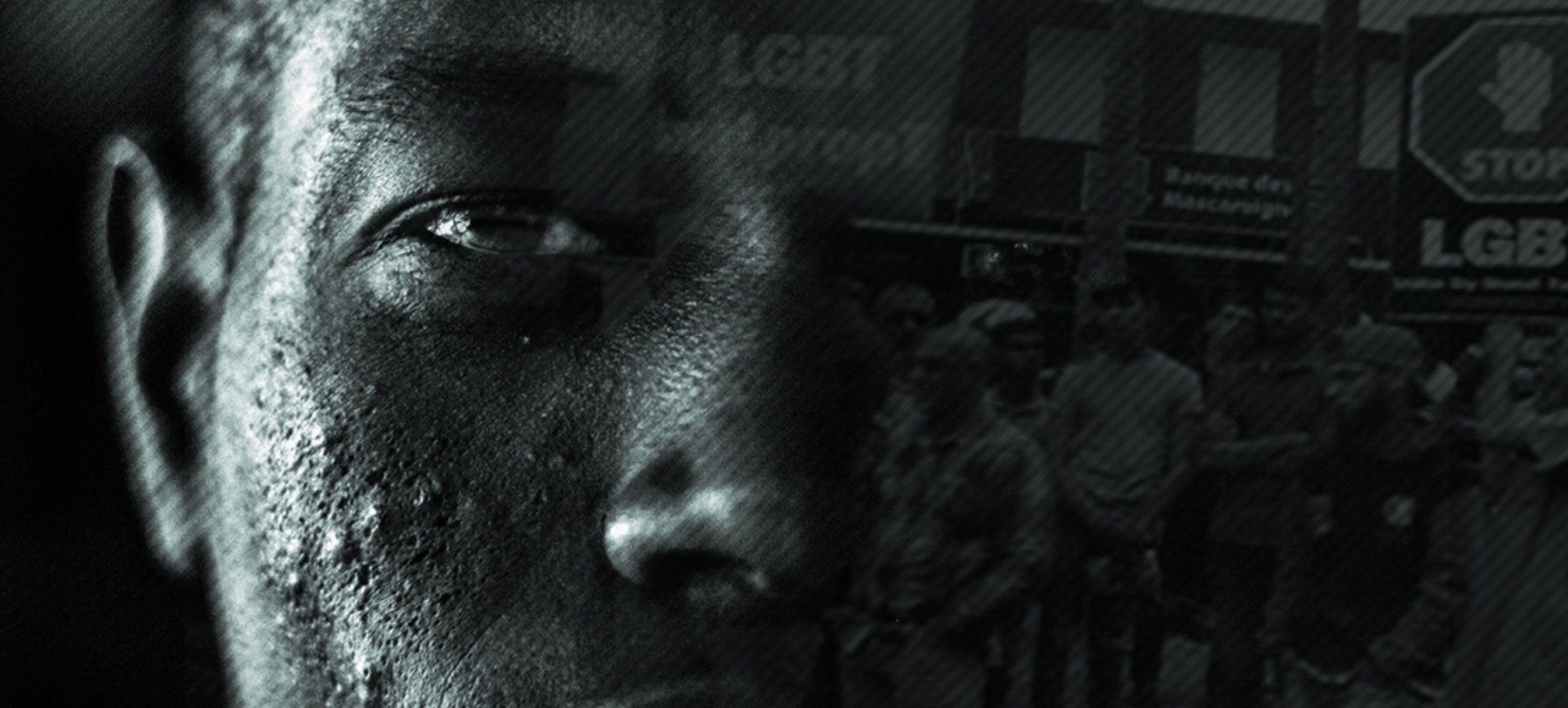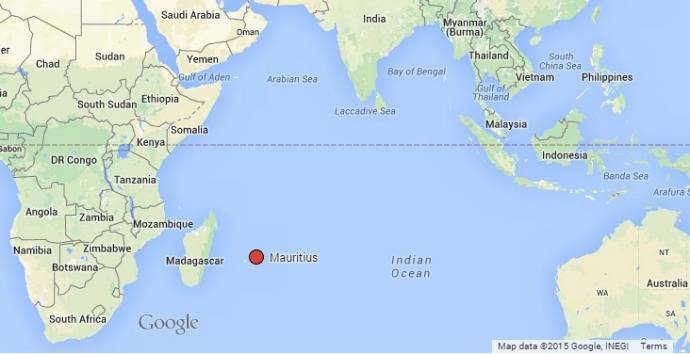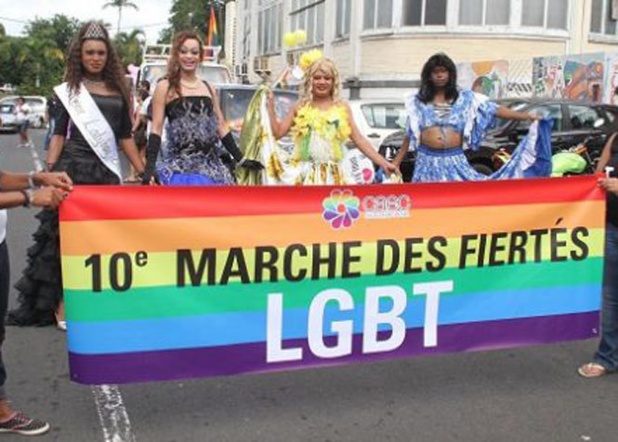The organizers of the canceled Pride March in the offshore East African island nation of Mauritius are seeking international support to persuade their government to oppose anti-LGBT violence.

Advocacy imagery for All Out’s Mauritius campaign.
In an appeal backed by the international LGBT rights advocacy group All Out, the local LGBT rights advocacy group Arc-en-Ciel Mauritius is asking supporters to sign a petition to Pravind Jugnauth, prime minister of Mauritius, urging him to side with them against anti-LGBT violence.
LGBT rights advocates have held often held successful Pride marches in the past.
The petition comes after this year’s Pride March was cancelled when an armed mob of homophobes showed up at the march and threatened to harm Pride-goers.

Location of Mauritius east of Madagascar in the Indian Ocean. (Map courtesy of Google and MauritiusInsideOut.com)
A group of largely Muslim “anti-LGBTI protesters had gathered in the Place d’Armes after it was incorrectly presumed someone in the LGBTI community had shared a photo of sign with an Islamaphobic comment on social media,” Gay Star News reported.
Muriel Yvon, vice president of Arc-en-Ciel Mauritius, says she will soon meet with the prime minister: “I’ll ask him to publicly denounce this attack and commit to keeping Mauritius Pride safe – and it would make a world of difference if I could show him that thousands around the world are with us.”
This is Yvon’s request:
Imagine putting months of work into a Pride celebration – just to be violently intimidated by an armed mob of homophobes the moment you hit the streets. This is what happened to us last week in Mauritius, an island nation off the coast of Africa.
My name is Muriel and I’m one of the organisers of Pride. Since the attack, we have been receiving literally hundreds of hate messages, including death threats.
Same-sex relationships are illegal in Mauritius, which makes Pride all the more important. But many of us are now scared for our safety and even considering giving up. If authorities don’t take a stand, this could be a fatal blow to Pride in Mauritius.
I am going to meet with our Prime Minister in the coming days, and I’ll ask him to publicly denounce this attack and commit to keeping Mauritius Pride safe – and it would make a world of difference if I could show him that thousands around the world are with us.
Will you please sign the petition to ask authorities to keep Mauritius Pride safe?
Help turn hate into love in Mauritius
This is the text of the petition:
The Pride March in Mauritius was cancelled after an armed mob of homophobes showed up at the march and threatened to harm Pride-goers.
Mauritius Pride organizers have subsequently received dozens of threats, including death threats.
I urge you to publicly denounce this attack and commit to keeping Mauritius Pride safe.

In 2015, LGBT citizens of Mauritius celebrated their 10th Pride March. (Photo courtesy of Indian Ocean Times)
Status of LGBT rights in Mauritius
A 2015 report on Mauritius by the U.S. State Department:
The constitution and law specifically prohibit discrimination based race, caste, sex, religion, political opinion, national origin or citizenship, social and civil status, disability, sexual orientation, HIV-positive status, or having other communicable diseases. Despite laws in place, discrimination occurred, particularly against women; persons with disabilities; and lesbian, gay, bisexual, transgender, and intersex (LGBTI) individuals, but victims filed few cases for cultural or societal reasons. Non-Hindus claimed they faced discrimination in hiring and promotion for government jobs. The government imposes a maximum age limit of 40 years for the recruitment of new civil servants. The law prohibits all forms of trafficking of adults and children and prescribes penalties of up to 15 years’ imprisonment for offenders. There have been no prosecutions under the human trafficking law.
The law does not specifically criminalize consensual same-sex sexual activity. It criminalizes sodomy, however, among both same-sex and heterosexual couples. Sodomy cases that reached the courts almost exclusively involved heterosexual persons, especially as an aggravating factor in divorce cases. Authorities rarely used the sodomy statute rarely against same-sex couples, unless one of the partners cited sodomy in the context of sexual assault.
LGBTI victims of verbal abuse or violence within the family reported such incidents to local NGOs Collectif Arc-en-Ciel or Young Queer Alliance. Victims generally refused to file complaints with police, however, for fear of ostracism or, in some cases, fear of reprisal from family members. On September 18, police officers of Sodnac police station, accompanied by police officers of the Criminal Investigation Division of Quatre Bornes, arrested a young transvestite allegedly for no reason. Police took the victim to the Sodnac police station where police strip-searched him and forced him to parade naked in front of police officers who mocked him. The victim filed a complaint with the NHRC, and at year’s end the investigation was ongoing.
Following a complaint about the questionnaire used by the Ministry of Health and Quality of Life to prohibit blood donation from LGBTI persons, the ministry amended its policy and website in 2013 to indicate individuals who have had same-sex sexual activity could donate blood. There were anecdotal reports, however, that health officials still prevented LGBTI persons from donating blood.
COMMENTS